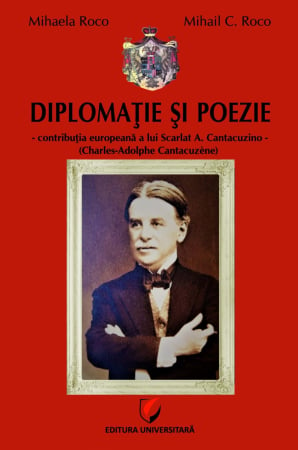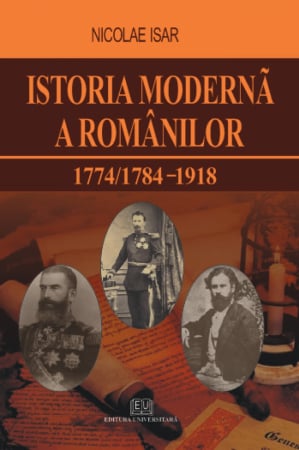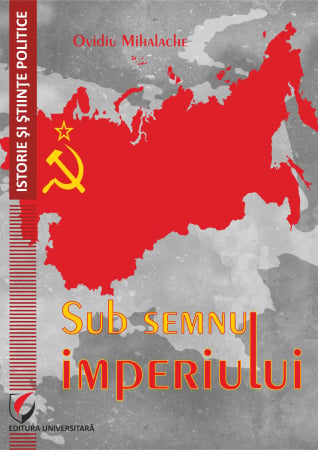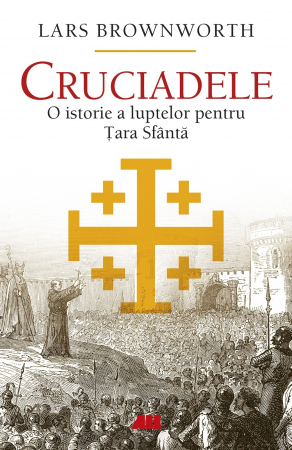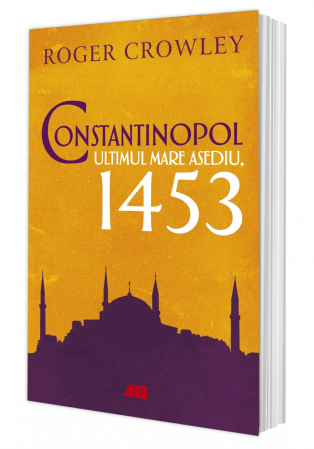ISBN: 978-606-591-173-4
Publisher year: 2011
Edition: I
Pages: 240
Publisher: Editura Universitară
Author:
- Description
- Download (1)
- Content
- Authors
- Reviews (0)
Developments in the international security environment at the beginning of the century and millennium, radically changed the perception of security threats to continental and global, which resulted in a broad review lists of concerns, leading policy makers and analysts advised to say that "the world has changed, "that a thorough cooperation by which to mobilize, in a unitary, non-conventional resources to combat threats.
The evolution of contemporary society shows that although measures have been intensified and specialized agencies of social control interventions against acts of organized crime in many countries there is a resurgence and a multiplication of them, representing a social problem whose solution interests method of expression and the control factors in the field, such as police, justice and administration, and public opinion.
Threats a decade ago were considered cvasiunanim, speculation moved or analytical assumptions unlikely to materialize now become reality. While the causes of crime RECRUDESCENCE are difficult to identify and explain the existence of sensitive differences in terms of scale and intensity from country to country, most professionals and researchers consider that the sources of this phenomenon lies in the perpetuation of political structures, economic and regulatory deficient in maintaining and deepening social and economic disparities between individuals, groups and communities and increasing social and ethnic conflicts and tensions.
The proliferation of "rational violence", organized crime and criminal organizations specific professional is now amplified by acts of terrorism committed in order to inspire fear, fear and terror among the public, but also a number of offenses and crimes that violate rights and freedoms of the individual (murder, murder, rape, robbery, physical assault).
In the context of major political and social changes today, the international imbalances and tensions caused by these processes, new forms of crime have increased especially in underdeveloped countries or those in transition to market economy. A criminal group, by its mode of structure, flexibility and great capacity of penetration into vital areas of politics and economics, with its global scope quickly, unconditional recourse to violence, corruption and blackmail, is a direct threat and actuality, a challenge to the world society.
The classic version of a criminal organization can be a number of specific features such as structure, hermetic and conspiracy, flexibility, speed and capacity of infiltration, the transnational character of criminal organizations, profit orientation and use of force. Thus, criminal organizations have come to coordinate most of the world traffic in drugs, weapons, ammunition, strategic, human trafficking and stolen luxury cars, to be the owner of banks and holding companies to own hotels, casinos and oil fields, to engage in modern methods of crime such as money laundering and computer crime.
Opening wide the borders, developing a highly permissive legislation external factors, poor economic development, political instability and corruption in poor countries have created exceptional opportunities and gaps for expansion and globalization of criminal organizations. Currently, transnational crime is a complex phenomenon of extreme gravity, so the material value of the damage they cause society as a whole, and by force that is able to penetrate and alter the economic climate, social and even political, can affect not only the rule of law, but in extremis, even national security.
However, the globalization of crime shows tend to diversify and expand illegal activities unhindered movement of people, goods and information, the rapid liberalization of financial markets, removing trade barriers. However, currency markets combined with globalization, massive exodus of immigrants and deepening trend of obtaining immediate prosperity, were the opportunities that crime has exploited quickly. Thus, the international community was faced with an economy "underground" large-scale, likely to discourage any attempt to control state and create conditions conducive to mark the money derived from illicit business as drug trafficking, weapons, human beings, cars etc. stolen luxury. What is worrying is that this "virus" has reached the maximum in both the world and in our country until recently considered a "pioneer" in terms of organized crime.
We are dealing with forms of expression we mostly international crime and violence. Traditional crimes become a new challenge by changing operating modes. The production potential and imminent threat of damage to these crimes can be regarded as attacks on European civil society. This assessment fits broadly and international terrorism. Thus, to recognize the bombers in London and Madrid was to induce a state of fear and terror by killing a large number of people. Also the efforts of organized crime groups use for their parts of the economic circuit for criminal purposes and thus be able to control them can be seen as an attack on our society. If these groups would be successful, an essential foundation of our political systems in Europe - economic freedom - would be endangered. At the same time an expression of lack of simultaneity mentioned above is to commit more frequently, in parallel, from criminals or criminal groups in countries of crimes leading to the disadvantage of other countries and less developed societies. Sexual abuse of children in less developed countries, corruption and environmental crimes and illegal removal of waste are just a few examples.
The biggest challenge in recent years is represented by international terrorism and forms of crime which is derived here. Terrorism is indeed a recent phenomenon. But in the hands of offenders for religious reasons, he acquires a new dimension of risk that exceeds all expectations and perceptions so far. The London suicide bombers are a recent example in this respect. This terrorism is in the viewfinder so-called "soft targets". It seems to act as an international network that is limited but a propagandist international component via the Internet and common ideology of jihad. Because Al Qaeda has not currently strict hierarchical structures, local network very flexible and adaptable in operational actions, it is a form of threat changed.
As a particular problem looming in the future relations of international terrorism with organized crime. Could not find until now a national symbiosis. But in some countries structural relationship between terrorism and organized crime. Thus, Taliban fighters in Afghanistan are financed by drug trafficking, similar to the FARC in Colombia. Therefore, it requires more attention in those areas where structures are combined so-called "Warlord" with organized crime. Both share an interest in democratic structures as weak and limited control possibilities of prosecuting authorities. Terrorism and business illegal people and weapons found in these regions ideal land advantageous logistics and financial support. Research shows that the phenomenon should be initiated counter-terrorism and foreign countries. the ultimate goal must be to avoid attacks. In this context the state authorities around the world looking in permanent solutions to known phenomena, but also to identify the most effective strategies and tools to fight national, regional and international levels in a single purpose: to ensure security.
Security is based both on political stability, but also the military, which are complementary conditioning. A mobile and effective system of international security, and European default, can be built only if the two components will be consolidated. Security policy based on cooperation aimed at preventing conflicts, reducing the danger of armed confrontation, with special emphasis on promoting openness and transparency.
The civilized world has declared war on terrorism and other threats, trying also to find answers to questions like: "How do we define the enemy?", "What is the proper war strategy to be adopted?".
After the shock of the tragedy of 11. IX.2001, the images still unclear began to take shape: unconventional threats facing civilization, asymmetric, totally different from traditional ones. Virtually all continents and regions are faced with such threats, they became, truly a global problem.
One of the most virulent threat to the border organized crime. It is more and more public attention, national governments and international organizations. Representing undoubtedly an unprecedented challenge in the beginning of the millennium and the first era of globalization and technological advance, there is a growing tendency to regard this phenomenon as a threat to general security and public order, national and international. Under these conditions, more and more countries and international organizations are more efficient public management desire international cooperation to combat such threats.
Thus, the thesis aims subsumed approach as the basis of a thorough analysis, to identify national security risks associated forms of manifestation of cross-border organized crime, to make fundamental directions and how to optimize the management of international cooperation to combat threats unconventional, especially those that are specific to border areas.
The content of the paper felt the need for ordering and grouping systematization of knowledge on each topic discussed, because of an extensive study of documentary material sufficient controversy and theories have emerged which do not approach possible start in developing their own conclusions without some preliminary clarifications .
Based on what is already recognized as scientifically sound, the contents of the thesis are reflected searches undertaken to "break up" the field of reality that subsumes the subject integrated theme of the thesis title. The approach was based on the known and unknown, from certain to uncertain, following the end of each analysis the samples are clear, known and certain.
All these clarifications were the fundamentals of identifying and formulating original solutions, and believe viable for strategic management of identified risks to national security associated forms of manifestation of cross-border organized crime.
-
Crima organizată transfrontalieră. Factor de insecuritate pentru naţiuni
Download
CUPRINS / 5
INTRODUCERE / 7
CAPITOLUL 1. Cadrul teoretico - metodologic de analiză a problematicii securităţii naţiunilor. Repere de ordin epistemologic privind abordarea satisfăcătoare a conceptului de „zonă transfrontalieră” / 12
1.1. Consideraţii generale privind conceptul de „securitate”. Dinamica procesuală a securităţii interne / 14
1.2. Evoluţia conceptului de securitate internă / 28
1.2.1. Conceptul de securitate internă românească / 29
1.2.2. Securizarea frontierei / 30
1.3. Mediul internaţional de securitate – dimensiuni, evoluţii, perspective / 33
1.4. Ameninţări la adresa mediului de securitate / 38
1.5. Fundamente teoretico-ştiinţifice. Conceptualizarea „frontierei de stat” / 50
1.6. Dimensiunea economică a zonelor transfrontaliere / 56
CAPITOLUL 2. Ameninţările neconvenţionale – surse de insecuritate ale naţiunilor în era globalizării / 61
2.1. Repere metodologice de analiză a problematicii ameninţărilor neconventionale / 61
2.2. Modalităţi satisfăcătoare de identificare a surselor ameninţărilor neconvenţionale / 65
2.3. Abordări ale ameninţărilor neconvenţionale în zona transfrontalieră / 66
2.3.1. Clarificarea modalităţilor de manifestare a ameninţărilor neconvenţionale în zonele transfrontaliere / 66
2.3.2. Clarificarea condiţiilor de apariţie a fenomenelor subsecvente ameninţărilor neconvenţionale / 69
2.4. Managementul prevenirii şi combaterii fenomenelor subsumate ameninţărilor neconvenţionale / 72
CAPITOLUL 3. Crima organizată – principala ameninţare neconvenţională la adresa securităţii naţionale / 75
3.1. Crima organizată – dimensiuni, concepte, forme de manifestare / 76
3.2. Principalele cauze si condiţii ale apariţiei şi proliferării crimei organizate / 85
3.3. Forme de manifestare a crimei organizate în zonele transfrontaliere / 87
3.3.1. Traficul de persoane - un nou gen de sclavie al secolului XXI / 88
3.3.2. Traficul ilicit de droguri / 88
3.3.3. Migraţia ilegală/ 89
3.3.4. Traficul cu materiale strategice/ 90
3.3.5. Criminalitatea economică organizată / 100
3.3.6. Criminalitatea cibernetică / 101
3.3.7. Terorismul / 110
CAPITOLUL 4. Crima organizată în zonele transfrontaliere – risc major de insecuritate pentru naţiuni. Concepte strategice de gestionare şi politici de securitate / 120
4.1. Constituirea, consolidarea şi dezvoltarea unor structuri şi forme specifice fenomenului criminalităţii transfrontaliere / 125
4.2. Riscuri de natură economică / 127
4.3. Riscuri de natură ecologică / 130
4.4. Destabilizarea sistemului financiar-bancar / 132
4.5. Politici externe şi de securitate a statelor / 134
4.5.1. Strategia de securitate naţională a României / 138
4.5.2. Strategia de securitate naţională a S.U.A / 143
4.5.3. Strategia de securitate a Uniunii Europene / 148
4.5.4. Strategia de securitate a Federaţiei Ruse / 155
CAPITOLUL 5. Ordinea şi siguranţa publică - componentă esenţială a strategiilor de securitate a naţiunilor / 170
5.1. Ordinea şi siguranţa publică în noul context european / 170
5.2. Necesitatea şi principiile redefinirii ordinii publice naţionale / 173
5.3. Determinări interne şi internaţionale ale ordinii publice / 181
5.3.1. Caracteristici, principii şi reglementări interne ale ordinii publice / 182
5.3.2. Determinări obiective, subiective şi voluntariste / 184
5.3.3. Condiţionări externe şi interne ale ordinii publice / 184
5.4. Reglementări internaţionale referitoare la ordinea publică / 187
5.4.1. Reglementarea comportamentului în spaţiul comunitar / 188
5.4.2. Ordinea publică şi securitatea interioară europeană / 191
CAPITOLUL 6. Cooperarea internaţională – o nouă paradigmă pentru dezvoltarea durabilă a omenirii / 193
6.1. Consideraţii generale asupra conceptului de cooperare poliţienească internaţională / 193
6.2. Dinamica evoluţiei ameninţărilor neconvenţionale – factor determinant al organizării managementului cooperării între state / 197
6.3. Direcţii şi modalităţi de acţiune pentru optimizarea managementului cooperării internaţionale în vederea combaterii ameninţărilor neconvenţionale specifice zonelor transfrontaliere / 200
6.3.1. Perfecţionarea cadrului conceptual al managementului cooperării internaţionale în domeniul intelligence / 203
6.3.2. Eficientizarea managementului cooperării poliţieneşti internaţionale / 209
6.3.3. Perfecţionarea modalităţilor care facilitează cooperarea la nivelul aplicării legii între statele Uniunii Europene / 213
6.4. Optimizări concepţionale, acţionale şi structurale ale managementului cooperării internaţionale între statele din sud-estul Europei / 214
6.5. Propuneri şi previziuni referitoare la viitorul colaborării interne în contextul cooperării europene şi internaţionale / 218
CONCLUZII ŞI PROPUNERI / 224
BIBLIOGRAFIE / 231

Ionel Tucmuruz
Doctor of Military Science and Information.
As a graduate of the University "Lucian Blaga" of Sibiu in 1996.
He graduated a number of education and training courses, such as: Master in Project Management, the Faculty ecological management course in the Postgraduate Centre of the MIA, postgraduate courses at the University of Bucharest, Faculty of Law, specializing in Science Criminal - Criminal.

6359.png)
![Transnational organized crime. Factor of insecurity for the nation [1] Transnational organized crime. Factor of insecurity for the nation [1]](https://gomagcdn.ro/domains/editurauniversitara.ro/files/product/large/crima-organizat-transfrontalier-factor-de-insecuritate-pentru-naiuni-2037-15568.jpg)




